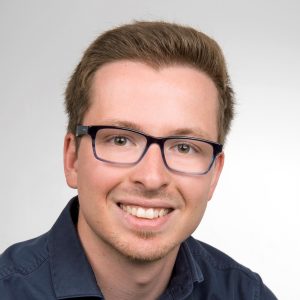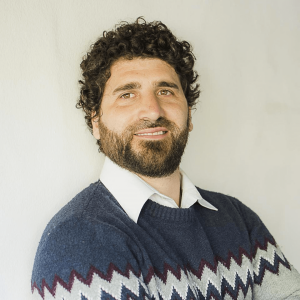
Maurice Günder
Maurice received the B.Sc. degree in physics and the M.Sc. degree in experimental particle physics from RWTH Aachen University. He is currently pursuing the Ph.D. degree with the Cluster of Excellence “PhenoRob,” University of Bonn, Germany. Since 2020, he has been a Data Scientist with Fraunhofer IAIS, Sankt Augustin, Germany. His research interests include time series and image analysis, knowledge extraction from sensorial data, and process knowledge aided modeling in the context of agricultural phenotyping and autonomous driving.

Facundo R. Ispizua Yamati
Facundo received his degree in agricultural engineering at the University of Córdoba, Argentina. He then completed a master’s degree in agriculture with a focus on resource management at the University of Göttingen, Germany. Since the beginning of 2020 he is a PhD student at Phenorob and works at the Institute of Sugar Beet Research (IfZ) in Göttingen. His interests are the detection of plant pathologies by means of optical and environmental sensors especially in sugar beet fields. The generation of multisensory models and the integration of artificial intelligence in agriculture.
The availability and cost efficiency of Unmanned Aerial Vehicles (UAVs) connected with high-resolution cameras enable the application of precision agriculture methods on large-scale field experiments. At the Institute of Sugar Beet Research (IfZ) in Göttingen, Germany, we investigate and conduct field experiments on the most damaging foliar disease in sugar beet, the Cercospora leaf spot (CLS). With Computer Vision based methods, we can detect single plants on UAV images. If flight missions are repeated throughout the whole growing season, our method can connect single plants by location and time. We call this approach “plant cataloging”. It builds the basis for a large data framework where single plants can be observed though their complete growing cycle. After the cataloging, the gathered dataset can be used for the training of various state-of-the-art machine learning models like CNNs. In our work, we show that the disease severity estimation on a single plant basis is possible even with lightweight models.
Supervisors and Co-researchers
Prof. Dr. Anne-Katrin Mahlein
Prof. Dr. Christian Bauckhage
Abel Barreto, Jana Kierdorf and Prof. Dr.-Ing. Ribana Roscher
Acknowledgements
IfZ Sensorik department especially to Lea Pichler